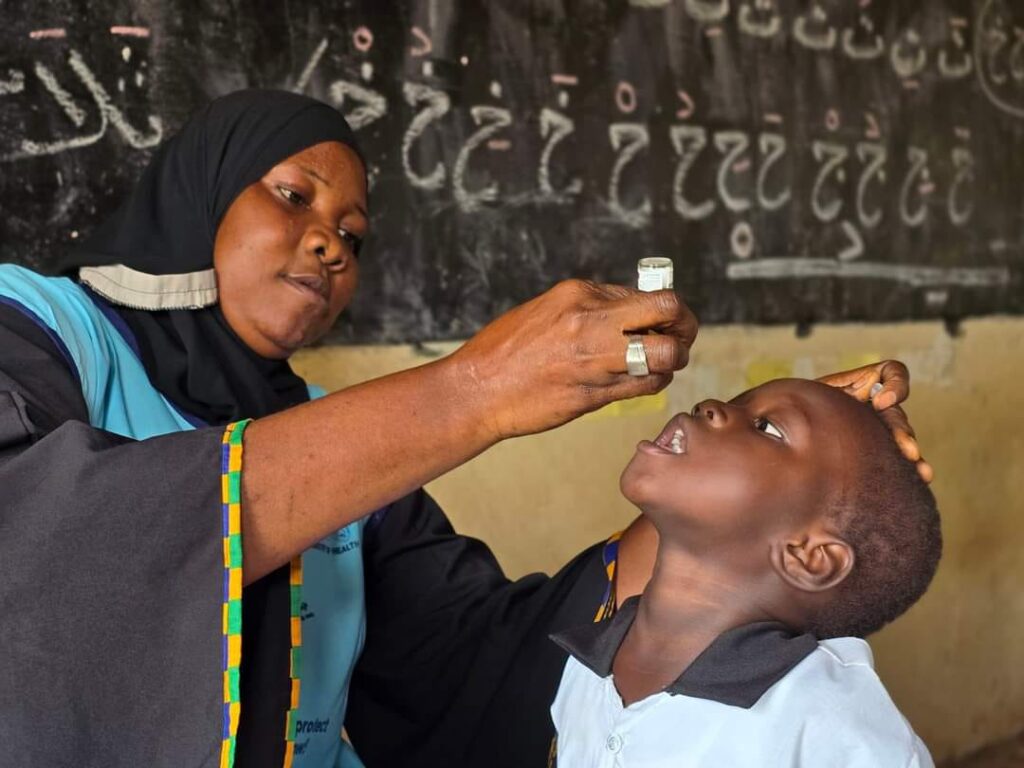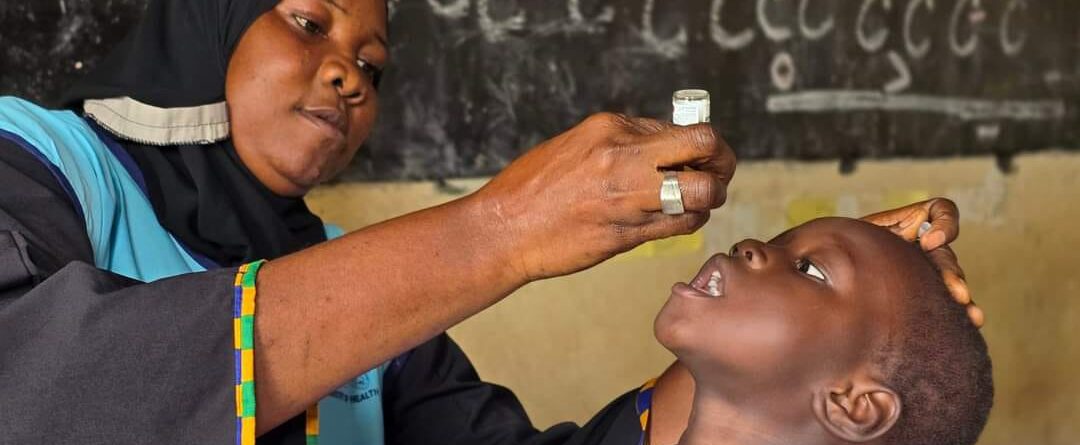Factsheet: Why every Gambian child needs polio vaccination
By Kaddy Jawo
The Gambia government has wrapped up round one of the nationwide polio vaccination in the country. It happened between the 12th and 15th of November while the second phase is expected to take place next month – the 12th to 15th of December. But here are more facts about polio as a public health emergency that make it imperative for every child in the Gambia to get vaccinated to prevent contracting the consequential ailments.
But first, what’s polio?
According to the World Health Organisation (WHO), poliomyelitis (polio) is a highly infectious viral disease primarily affecting children under 5. It spreads mainly through the faecal-oral route and can cause paralysis by invading the nervous system.

@UNICEF Gambia Facebook page
To curb the spread of the virus, the Global Polio Eradication Initiative was launched In 1988, leading to a 99% reduction in wild poliovirus cases, from 350,000 in over 125 endemic countries to just 6 reported cases in 2021. Wild poliovirus type 2 was eradicated in 1999, and type 3 in 2020. As of 2022, wild poliovirus type 1 is still endemic in Pakistan and Afghanistan.
Symptoms
The symptoms include fever, fatigue, headache, vomiting, stiffness in the neck, and pain in the limbs. These symptoms usually last for 2–10 days and most recovery is complete in almost all cases. However WHO reports that 90% of people infected by polio experience no or mild symptoms and the disease usually goes unrecognized.
Why vaccination must be considered
Because polio has no cure, the only prevention is by immunization through the polio vaccine which can give a lifetime prevention, if given multiple times.
As a highly infectious virus, the polio virus can cause permanent leg paralysis, as rapidly as within a few hours of infection. 5-10% of those infected die when their breathing muscles become immobilized, according to the WHO. If it enters your system, its incubation period is usually 7–10 days but can range from 4–35 days before it invades the nervous system. Aside from the vaccination, maintaining good hygiene and sanitation can prevent the quick spread of the virus as it can be attracted to children through faeces.
How does vaccination prevent polio?
The oral polio vaccine (OPV) contains a weakened poliovirus that triggers an immune response in children. When vaccinated, the weakened virus replicates in the intestines, helping to produce protective antibodies. This virus can be excreted, spreading in areas with poor sanitation and providing ‘passive’ immunization to other children, which is vital in low-access communities. However, in under-immunized populations, the excreted virus may survive longer, leading to genetic changes. In rare cases, this can result in a form of the virus that causes paralysis, known as circulating vaccine-derived poliovirus (cVDPV).
Therefore, to protect children and communities, it’s essential to ensure high vaccination coverage and remain aware of these risks. Together, we can eliminate polio and secure a healthier future.
Polio redetected in Gambia.
In July 2024, The Gambia’s Ministry of Health announced another polio outbreak of a new strain of poliovirus (CVDPV) from the environmental surveillance site located in Banjul following sample testing.
To prevent the further spread of the virus, the Ministry is embarking on a double-headed National Immunisation Day campaign targeting 426,000 Gambian children across the country in November and December.
Polio was nearly eradicated globally until its re-emergence in recent years, especially in the Gambia with poliovirus type 2 outbreak. The WHO and UNICEF have been consistently supporting the Gambia government’s drive to make Gambia polio-free.
The National Immunisation Day campaigns aim to combat the recent cVDPV2 outbreak by ensuring broad immunity among young children, boosting immunity by strengthening immunity levels in children under five and reducing the risk of virus transmission while also contributing to the eradication of polio in the country.
Polio Vaccine Details:
● Type: Oral polio vaccine (OPV), administered as easy-to-swallow drops.
● Cost: Free of charge for all children in the target age group.
● Safety: The vaccine is safe, effective, and essential in preventing polio.
How to get your child vaccinated
Dozens of trained public health teams have been dispatched across the country to administer the vaccine. They will reach households, schools, and other community centres. Parents whose children missed out are encouraged to visit the nearest health facility for vaccination where routine immunisation occurs.
Role of parents and caregivers
Parents and caregivers must always ensure that their children (aged 0-5) receive the vaccine during both rounds of the NIDs. They should also bring their children to the nearest health facility if they miss out on the household vaccination exercises. Parents and caregivers also have a responsibility to maintain a clean and healthy environment for children.

